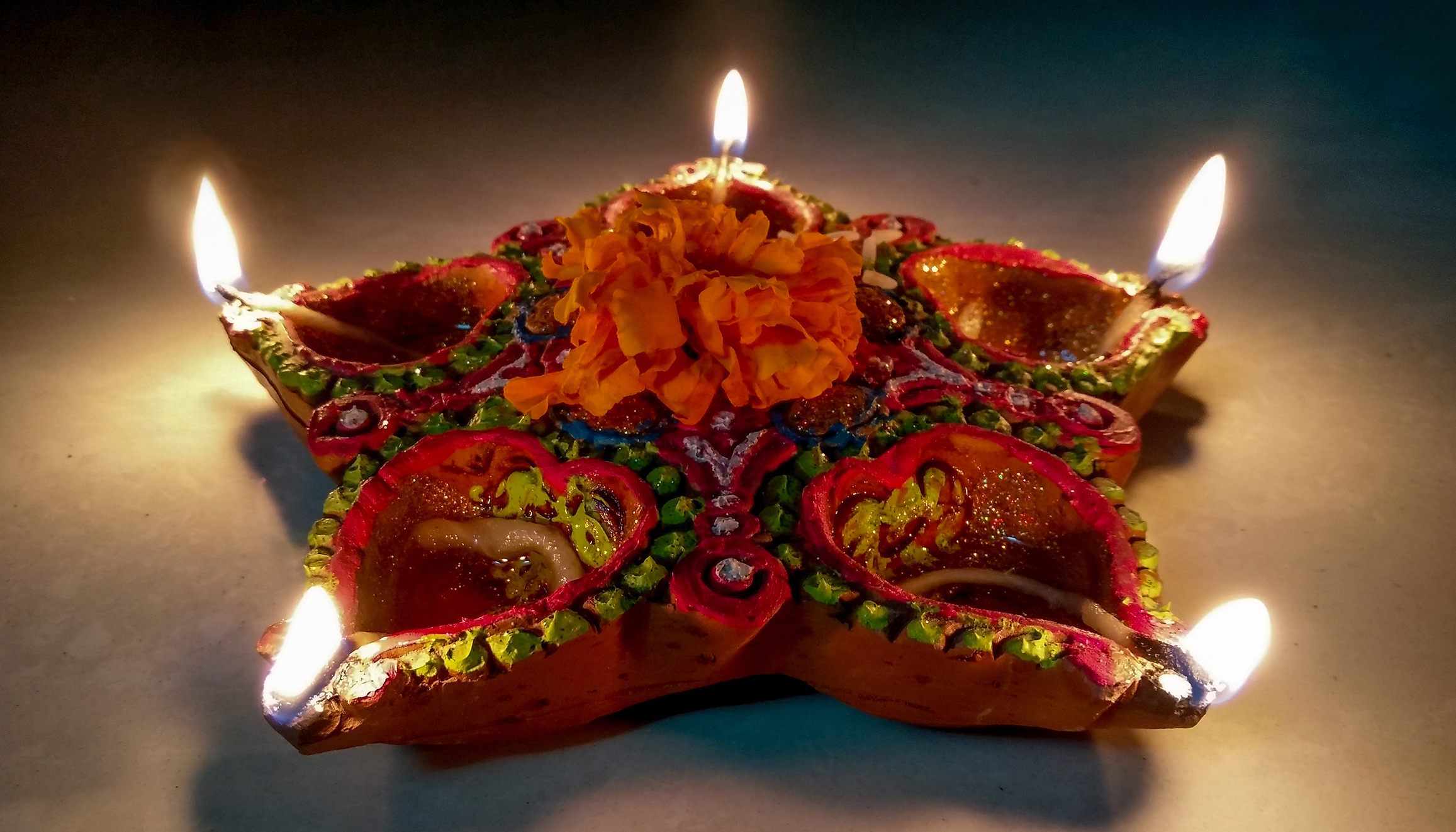
Tens of thousands of Oman’s sizeable South Asian expat population are celebrating Diwali. Often called the festival of lights, Diwali’s most standout characteristic has to be the lighting of lamps, also called diyas in Hindi, and symbolises the banishment of darkness by light. People often deck themselves and their homes in their finest, and it is custom for them to exchange sweets with their friends, family and loved ones.
What is Diwali?
Diwali is a festival which symbolises the triumph of good over evil. Legend has it that in ancient India, Prince Rama of the kingdom of Ayodhya was sentenced to 14 years of exile, and his faithful brother Lakshmana, and wife, Sita, unhesitatingly joined him. During his exile, Rama’s wife was kidnapped by Ravana, the demon king, who wished to keep her for himself. Undaunted, the brothers raised an army and marched towards his kingdom, learning many lessons along the way. An epic battle between the forces of good and evil was fought, before the might of righteousness won through to victory. Victorious, Rama returned with his wife, brother and newfound allies to Ayodhya, where he was crowned as the king and hence the celebrations. Diwali is also celebrated among other religious groups, notably, Jains, Buddhists and Sikhs, under different names.
What do people do on Diwali?
Diwali is a time of joy and celebration, and traditionally symbolises the practice of doing things the right way. People dress up in their finest attire, and clean and decorate their houses. It is often common for people to visit friends and family with boxes of sweets during this auspicious occasion.
Present both within and outside people’s houses are the ubiquitous diyas or oil lamps, which are traditionally made of clay, but are fashioned from other materials as well these days. They are then painted with bright colours and patterns to give them a festive look.
Another characteristic of Diwali has to be the intricate and exquisite Rangoli patterns. Traditionally made from powdered rice, Rangoli is made from materials such as coloured powder or sand. Rangoli often takes hours to make, and those who craft these designs often do so out of love.
Should you be invited to people’s houses this Diwali, do expect traditional patterns depicting scenes from one’s culture outside their homes. Cracker bursting is also a mainstay of the festival, but with the Sultanate taking care of people’s wellbeing as well as environmental safety, cracker-bursting is not permitted during Diwali.
What do expats in the Oman say?
“We celebrate Diwali by lighting diyas and candles in our house. We switch on the fancy lighting and make colourful designs at our doorstep,” said Janki Rishit Hemani. “Our friends come over for dinner and we prepare special Diwali snacks and exchange sweets and gifts. We visit the temple and pray. I love this festival because it brings positivity and hope in everyone’s hearts. Shyam Maurya added, “Diwali is the festival of lights. I am not in India, but that is okay, because here in Oman, I will celebrate Diwali with my friends.” Shanza Khan seemed to miss home, as she said, “I am missing India on the occasion of Diwali. The sweets and the lighting are just fantastic.”